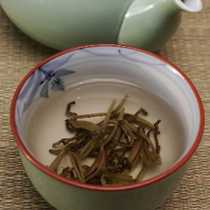Rise in B.C. property assessments means almost twice as many live in million-dollar homes
Derrick Penner
Sun

Data from the 2007 property assessments, crunched by Landcor Data Corp., shows that B.C. is home to 51,059 residential properties valued at more than $1 million. Photograph by : Vancouver Sun file
The number of real-estate millionaires in B.C.’s real estate market nearly doubled in 2006.
Data from the 2007 property assessments, crunched by Landcor Data Corp., shows that B.C. is home to 51,059 residential properties valued at more than $1 million.
That figure was 26,557 in 2006.
Most new paper millionaires own single-family houses. There are 38,027 such homes worth more than $1 million according to 2007 property assessments — 18,459 more than a year ago.
And the number of condominiums assessed at more than $1 million increased by almost three quarters to 3,260 properties.
The B.C. Assessment Authority released its 2007 assessments earlier this week, based on property values as of July 1, 2006.
Provincewide, the data extracted by Landcor showed that single-family-home assessments increased just over 20 per cent on average, with many communities seeing increases that were much larger.
The average house in Tumbler Ridge in B.C.’s northeast shot up almost 73 per cent to $158,384.
Since Vancouver’s average house assessment was up 23 per cent to $896,979, Cameron Muir, chief economist for the B.C. Real Estate Association, said people shouldn’t be surprised by the dramatic increase in million-dollar homes.
The run-up in real estate prices over the past few years had pushed many homes into the $800,000 to $900,000 range already, which “all bumped up over the year into the million-dollar range,” Muir said.
As well, Muir said, BC Assessment’s valuations cover the period between July 1, 2005 and July 1, 2006, which was “one of the strongest 12-month periods” as there has been in the current real estate market cycle.
Muir added that assessment increases are only “paper profits.”
“It’s the equity in your home. Today it may be high, [but] the market may change and it may not be so high in a few years,” he said.
However, Muir added that home-equity gains do help fuel the economy in so far as homeowners feel wealthier and are willing to spend some of that perceived wealth.
That notion is called the wealth effect, Muir said: Typically, people are likely to spend five cents of every dollar that their net worth increases.
Muir added that there is no reason for that wealth effect to drop off. Though real estate sales over the last half of 2006 slowed and price gains have slowed, they haven’t stopped.
And Muir believes the economy is still performing well enough with enough job and income growth to support real estate markets through 2007.
Landcor president Rudy Nielsen said there are also significant outside influences in B.C. real estate. Albertans, he said, bought about $1.5 billion worth of second homes in the province making B.C. “Alberta’s playground.”
Nielsen, who also heads the recreational-real-estate firm NIHO Land and Cattle Co., said he has also seen a big increase in the number of Americans from the San Francisco and Los Angeles areas buying recreational homes for more than recreational purposes.
“They’re buying secondary homes, what I call safe houses,” Nielsen added. They see B.C. as a safe haven from their fears over global terrorism.
Andrey Pavlov, a Simon Fraser University business professor currently a visiting scholar at the Wharton School of Business at the University of Pennsylvania, said expensive real estate has shot up in value the world over and Vancouver is no exception.
“Within Vancouver, the expensive areas have increased mort than proportionally,” Pavlov said.
He added that real-estate gains “reflect the increasingly skewed distribution of income.”
The rich are getting richer faster than incomes of the less wealthy are rising.
“There is income inequality in the U.S., around the world and in Canada,” Pavlov said. “And [the inequality] is increasing. Because of that, there is increased demand for [real estate], especially in those very desirable areas.”
© The Vancouver Sun 2007









